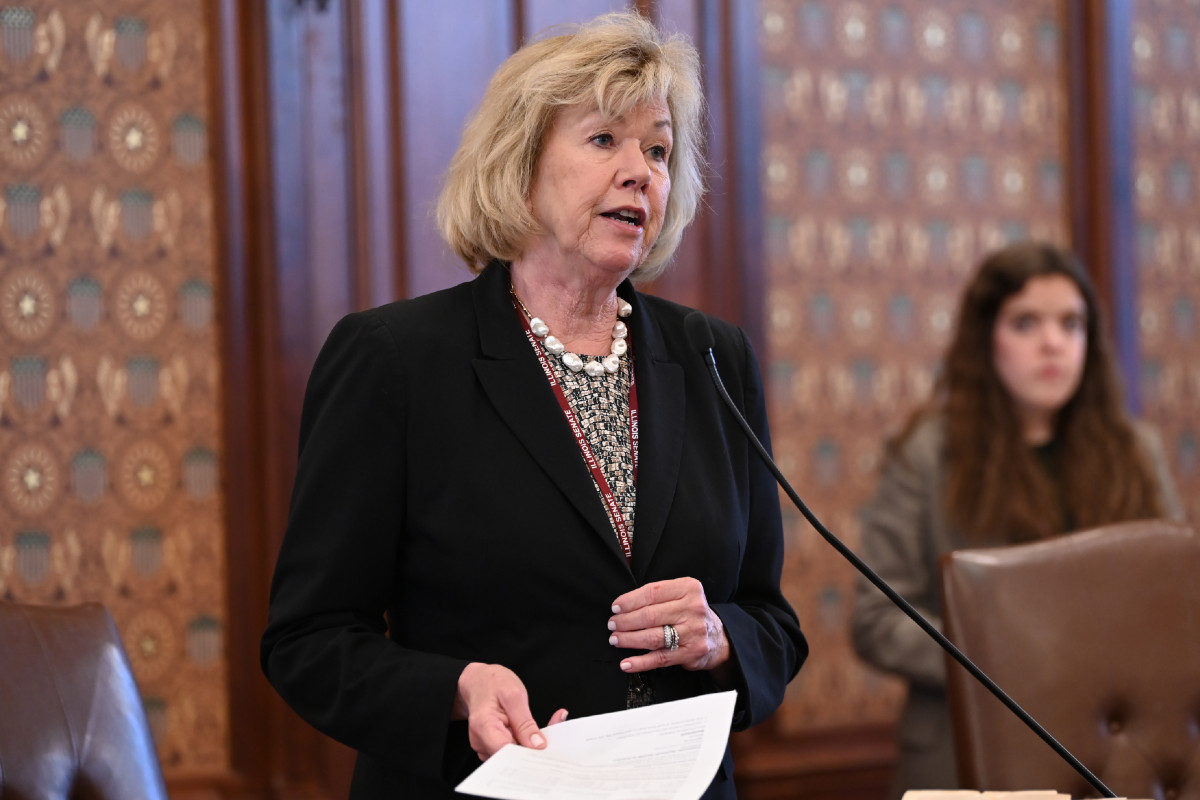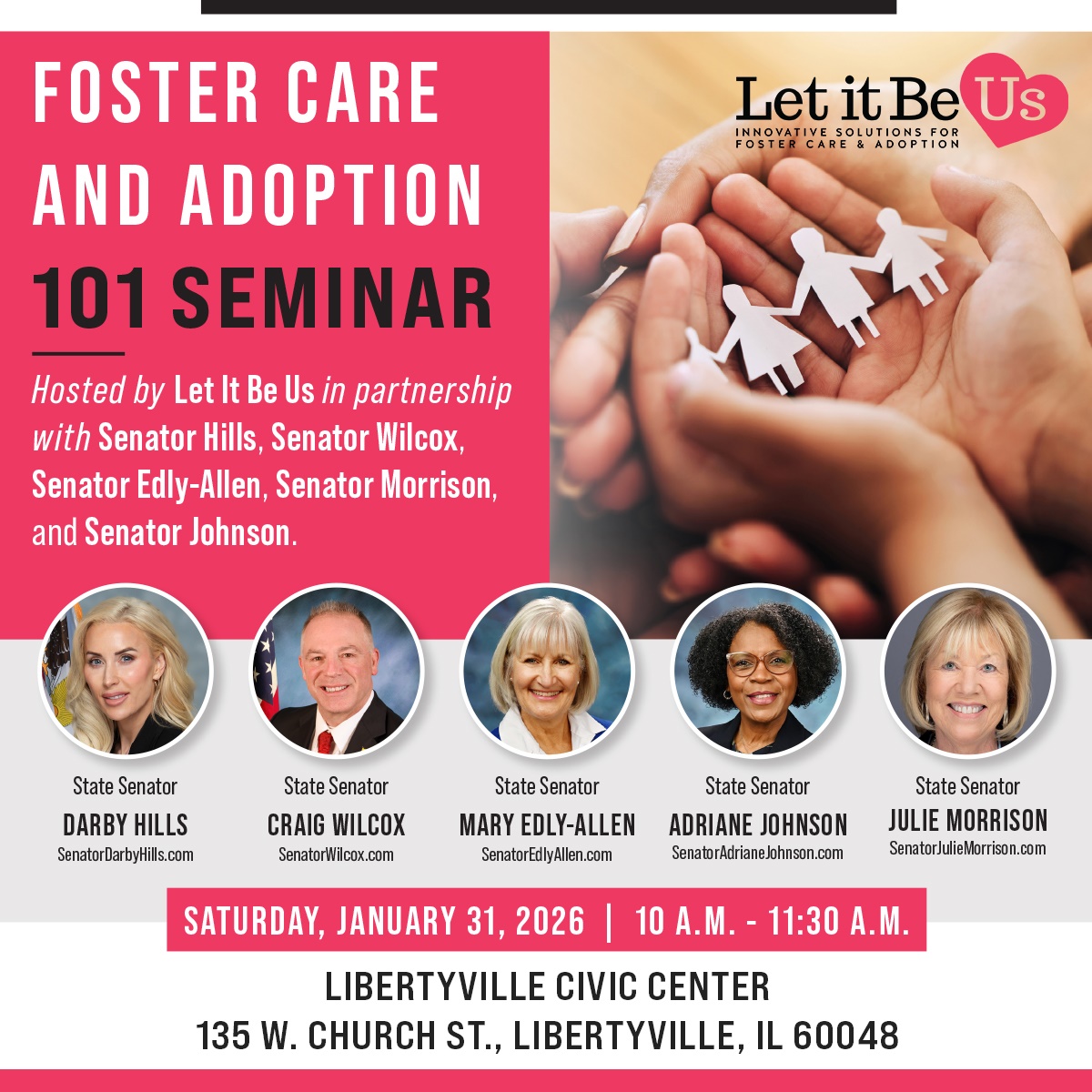Morrison announces $150,000 in state funding to promote small business growth
- Details
- Category: Latest

DEERFIELD — State Senator Julie Morrison announced that two $75,000 grants were awarded to innovative 29th District small businesses partnering with Northwestern University and Rosalind Franklin University.
“Our small businesses are the backbone of our community – ensuring opportunities and bolstering our economy,” said Morrison (D-Lake Forest). “By investing into future innovations created by local small businesses, we are uplifting economic development in our area.”
Morrison announces $1.8 million investment to local parks
- Details
- Category: Latest

DEERFIELD – Thanks to strong support from State Senator Julie Morrison, local parks received a combined total of $1.8 million from the Open Space Land Acquisition and Development grant to help continue ongoing improvements.
“An investment in our parks is an investment in our communities,” said Morrison (D-Lake Forest). “The 29th Senate District has some of the best parks in the state, and that is – in part – thanks to state funding we’ve brought to the area.”
OSLAD is a cost-sharing program between state and local governments that helps communities fund land acquisition and development for parks and outdoor recreation projects. It’s become one of the most popular grant programs in Illinois. Since its establishment, OSLAD has awarded $675 million for park projects throughout Illinois.
Northbrook Park District, Prospect Heights Park District and the City of Lake Forest each received a total of $600,000 for their respective projects. With the funding, Techny Prairie Park and Fields will be renovated, Country Gardens Park will see redevelopment, and South Park will see continued enhancements.
“Our team at the Park District is excited to see this major project move forward with the support of OSLAD funding. The renovation of Techny Prairie Park and Fields — a well-used asset that is nearing the end of its useful life — has strong community backing, developed through an extensive community engagement process,” said Northbrook Park District Executive Director Chris Leiner. “District leadership is grateful for the continued support of our local legislators who prioritize funding for park districts.”
Foster Care & Adoption 101 Seminar
- Details
- Category: Latest

In partnership with Let It Be Us, State Senator Julie Morrison's office office invites you to attend a free, informative Foster Care & Adoption 101 Seminar on Saturday, Jan. 31 from 10-11:30 a.m. at the Libertyville Civic Center, located at 135 W Church St. in Libertyville.
This seminar is designed to help individuals and families learn how they can make a meaningful difference for children in Illinois foster care. Whether you are just beginning to explore fostering or adoption, or you are ready to take the next step, this session will give you the knowledge and support to get started.
During this seminar, you will hear from knowledgeable guest speakers about the various types of foster care available in Lake County and surrounding areas, including emergency, specialized, traditional and therapeutic foster care.
You will also learn what each pathway entails, what supports are available, and how Let It Be Us can guide you through your fostering or adoption journey.
Learn more and register for the event here.
Morrison helps deliver on women’s health
- Details
- Category: Features

HIGHLAND PARK – All Illinois pregnant women on Medicaid can now access the important RSV vaccine from pharmacies thanks to the efforts of State Senator Julie Morrison, who has been working with state officials to make health care more accessible and equitable.
Effective Nov. 20, the Illinois Department of Healthcare and Family Services removed the requirements for additional documentation of informed consent beyond the standard methods used for vaccinations and prior authorization for the RSV vaccine, which is the maternal Respiratory Syncytial Virus Vaccine.
"The RSV vaccine is very important for pregnant women during this time of year, when RSV and respiratory illnesses tend to spike," said Morrison (D-Lake Forest). "I want to thank state officials at HFS for recognizing the need to guarantee pharmacy access to the RSV vaccine for all pregnant women on Medicaid."
The Illinois Department of Public Health made the following recommendations in September 2025 regarding RSV vaccination for individuals who have not been previously vaccinated:
- All pregnant people during weeks 32 through 36 of pregnancy
- Adults ages 50 years through 74 years at increased risk of severe RSV disease
- All adults ages 75 years and older
“This is welcome news for women and children, but the work cannot stop there,” said Morrison. “We need to continue working on vaccine literacy and continue our outreach efforts. Women need to know not only are these vaccines more accessible, but they are safe, effective, and essential.”
For more information on the RSV vaccine, click here.
More Articles …
Page 1 of 134





